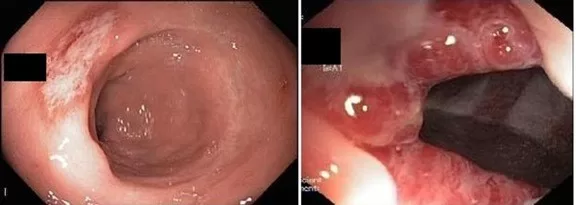Ever heard of Tenesmus? Sometimes you feel that you need to pass stool even if your bowel is already empty. That feeling is what we call Tenesmus. It may involve straining, pain, and cramping.
Most often it occurs with inflammatory diseases of the bowels. However, these diseases may be caused by an infection or other conditions. Also, it can occur with diseases that affect the normal movements of the intestines. Such diseases are known as motility disorders. People with tenesmus pass a small amount of stool.
What are the causes of Tenesmus?
This condition may be caused by:
- Movement disorders of the intestine.
- Inflammatory bowel disease.
- Inflammation of the colon.
- Infection of the colon.
- Anorectal abscess.
- Crohn diseases.
- Colorectal tumors.
- Ulcerative colitis.
Signs and symptoms of Tenesmus
These symptoms could be a sign of a disease that might be causing the problem:
- Vomiting
- Nausea
- Fever
- Chills
- Blood in the stool
- Abdominal pain
Diagnosing Tenesmus

- Blood tests
- Stool cultures
- X-rays of the abdomen
- Computed tomography scan
- Colonoscopy where a tube-like lens is inserted into the rectum to view the colon.
Treatment Of Tenesmus
Suppose you visit your health care with tenesmus, they will conduct some investigations to try and isolate the cause. This might include:
- Physical examination of your anus and rectum with lubricated gloved fingers.
- Investigation of your anus, rectum, or lower colon with a flexible lighted scope.
- A more extensive investigation of your entire large intestine using a colonoscope.
Treatment Of The Condition
If your tenesmus is caused by an acute condition that is recently treatable, your healthcare provider will treat the condition directly. That might mean antibiotics for an infection or prescription laxatives for severe constipation. Some conditions may require serious treatment such as surgery.
Treating Inflammation
Your healthcare provider may want to treat inflammation directly if it’s contributing to tenesmus by irritating the nerves in your tissues. They might prescribe anti-inflammatory medication or other specialty medicines designed to treat chronic inflammatory conditions.
- Who is Andrew Lincoln age, wife, children, career, net worth?
- Chris Parente bio, wiki, age, children, wife, net worth, career
- Mila Antonova early life, age, spouse, worth, affair with Bill gates.
- James Menendez Bio, Wiki, BBC London, Age, Education, Height, Family, Wife, Children, and Career
- Kevin Lemanowicz Bio, Wiki, Boston 25, Age, Education, Family, Children, Wife, Net Worth, and Career
- Sylvie Tellier Bio, Wiki, Miss France, Age, Education, Family, Children, Husband, Net Worth, and Career
- Wentworth Miller age, wife, children, parents, and career.
Treatment Of Rectal Symptoms
Some anti-inflammatory and pain relief medications can be used topically inside your anus and rectum to treat rectal tenesmus. If you have inflammatory bowel disease, keeping up with your regular medications can also help keep symptoms like tenesmus from glowing.
- What is the history of Kenyatta University?
- Mount Kenya University history, fees, courses
- List of best private primary schools in Kirinyaga County.
- A list of special secondary schools, and contacts.
- Bay head elementary school history, enrolment, programs offered.
- The best private primary schools in Nyeri county.
- Best Public High Schools in Kiambu County.